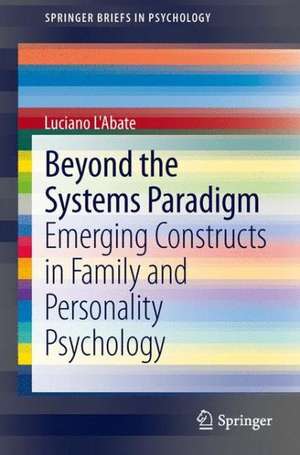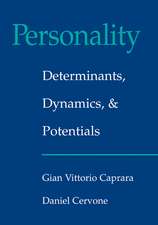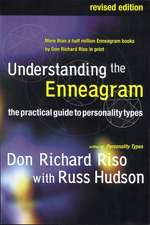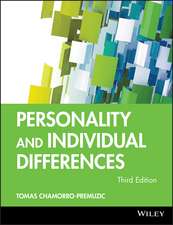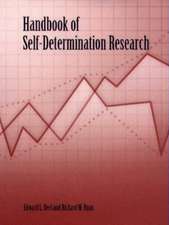Beyond the Systems Paradigm: Emerging Constructs in Family and Personality Psychology: SpringerBriefs in Psychology
Autor Luciano L'Abateen Limba Engleză Paperback – 31 mai 2013
Din seria SpringerBriefs in Psychology
-
 Preț: 345.89 lei
Preț: 345.89 lei - 17%
 Preț: 359.87 lei
Preț: 359.87 lei -
 Preț: 346.86 lei
Preț: 346.86 lei - 5%
 Preț: 375.87 lei
Preț: 375.87 lei -
 Preț: 479.67 lei
Preț: 479.67 lei - 5%
 Preț: 413.05 lei
Preț: 413.05 lei -
 Preț: 380.84 lei
Preț: 380.84 lei -
 Preț: 377.35 lei
Preț: 377.35 lei -
 Preț: 408.66 lei
Preț: 408.66 lei -
 Preț: 477.56 lei
Preț: 477.56 lei -
 Preț: 344.36 lei
Preț: 344.36 lei - 5%
 Preț: 421.92 lei
Preț: 421.92 lei -
 Preț: 479.47 lei
Preț: 479.47 lei -
 Preț: 441.85 lei
Preț: 441.85 lei -
 Preț: 478.53 lei
Preț: 478.53 lei -
 Preț: 443.97 lei
Preț: 443.97 lei -
 Preț: 376.43 lei
Preț: 376.43 lei - 5%
 Preț: 356.32 lei
Preț: 356.32 lei -
 Preț: 443.75 lei
Preț: 443.75 lei -
 Preț: 411.75 lei
Preț: 411.75 lei - 15%
 Preț: 462.51 lei
Preț: 462.51 lei -
 Preț: 412.89 lei
Preț: 412.89 lei -
 Preț: 374.46 lei
Preț: 374.46 lei -
 Preț: 377.18 lei
Preț: 377.18 lei -
 Preț: 479.08 lei
Preț: 479.08 lei -
 Preț: 343.88 lei
Preț: 343.88 lei -
 Preț: 474.45 lei
Preț: 474.45 lei -
 Preț: 376.22 lei
Preț: 376.22 lei - 15%
 Preț: 461.54 lei
Preț: 461.54 lei -
 Preț: 378.34 lei
Preț: 378.34 lei - 5%
 Preț: 357.23 lei
Preț: 357.23 lei -
 Preț: 342.74 lei
Preț: 342.74 lei -
 Preț: 376.80 lei
Preț: 376.80 lei -
 Preț: 376.04 lei
Preț: 376.04 lei -
 Preț: 376.22 lei
Preț: 376.22 lei -
 Preț: 344.25 lei
Preț: 344.25 lei -
 Preț: 442.44 lei
Preț: 442.44 lei -
 Preț: 375.23 lei
Preț: 375.23 lei -
 Preț: 374.85 lei
Preț: 374.85 lei -
 Preț: 409.80 lei
Preț: 409.80 lei -
 Preț: 374.85 lei
Preț: 374.85 lei -
 Preț: 414.42 lei
Preț: 414.42 lei -
 Preț: 344.10 lei
Preț: 344.10 lei -
 Preț: 446.65 lei
Preț: 446.65 lei -
 Preț: 476.79 lei
Preț: 476.79 lei -
 Preț: 379.68 lei
Preț: 379.68 lei -
 Preț: 380.07 lei
Preț: 380.07 lei -
 Preț: 408.44 lei
Preț: 408.44 lei -
 Preț: 376.43 lei
Preț: 376.43 lei
Preț: 347.31 lei
Nou
Puncte Express: 521
Preț estimativ în valută:
66.47€ • 68.57$ • 56.25£
66.47€ • 68.57$ • 56.25£
Carte tipărită la comandă
Livrare economică 28 februarie-06 martie
Preluare comenzi: 021 569.72.76
Specificații
ISBN-13: 9781461474432
ISBN-10: 1461474434
Pagini: 124
Ilustrații: XIX, 101 p. 18 illus.
Dimensiuni: 155 x 235 x 7 mm
Greutate: 0.14 kg
Ediția:2013
Editura: Springer
Colecția Springer
Seria SpringerBriefs in Psychology
Locul publicării:New York, NY, United States
ISBN-10: 1461474434
Pagini: 124
Ilustrații: XIX, 101 p. 18 illus.
Dimensiuni: 155 x 235 x 7 mm
Greutate: 0.14 kg
Ediția:2013
Editura: Springer
Colecția Springer
Seria SpringerBriefs in Psychology
Locul publicării:New York, NY, United States
Public țintă
ResearchCuprins
The Meaning of Constructs.- The Decline and possible Demise of Family Psychology: Families without Personalities.- The Decline and possible Demise of Personality Psychology: Personalities without Families.- The (Slow but Sure) Rise of Attachment Theory, Communication and Relationship Science.- Relational Competence Theory: Toward a Comprehensive Classification of Human Relationship.- Conclusion: Identity as an Overarching Construct in Relational Competence Theory.
Recenzii
From the reviews:
“In Beyond the Systems Paradigm: Emerging Constructs in Family and Personality Psychology, Luciano L’Abate proposes that family systems theory and personality theory be integrated in order to create a unifying theory of human relationships. … to those already familiar with and appreciative of L’Abate’s work.” (Nancy Murdock and Christopher Davids, PsycCRITIQUES, Vol. 58 (48), December, 2013)
“In Beyond the Systems Paradigm: Emerging Constructs in Family and Personality Psychology, Luciano L’Abate proposes that family systems theory and personality theory be integrated in order to create a unifying theory of human relationships. … to those already familiar with and appreciative of L’Abate’s work.” (Nancy Murdock and Christopher Davids, PsycCRITIQUES, Vol. 58 (48), December, 2013)
Notă biografică
Since his retirement in 1990, Luciano L’Abate, Ph.D. has been Professor Emeritus at Georgia State University where he was previously a Professor of Psychology beginning in 1965. L’Abate has been an editorial board member of many national and foreign professional and scientific journals, as well as a consultant to various publishing houses. He is the author and co-author of over 300 papers, chapters, and book reviews in professional journals in addition to authoring/editing 34 books. His work has been translated into Chinese, Japanese, Finnish, Spanish, French, Polish, and German languages. Dr. L’Abate is the recipient of many awards including "Family Psychologist of the Year for 1994" by Division 43 of the American Psychological Association, "Outstanding Contribution" by the Georgia Association for Marriage and Family Therapy, and "Outstanding Citizen" by the House of Representatives in the State of Georgia. He has also held workshops and lectured extensively in the United States, Australia, Canada, New Zealand, Japan, Germany, Spain, and Italy. Dr. L’Abate has spent the last several years involved full-time in writing and research since his retirement from Georgia State University.
Textul de pe ultima copertă
Mother, father, children together in a household. The number of U.S. families fitting that profile is declining steadily. And yet this arrangement is still the basis of so much of family systems theory and therapy--while the disconnect between theory and therapy is widening.
In response, Beyond the Systems Paradigm argues for the critical place of the individual in family psychology, and for the ties between family and personality psychologies as a key to modernizing systems theory and practice. The latest offering from Luciano L'Abate builds on his earlier work by analyzing the intricate relationships between conceptual ideas and clinical reality, and how this knowledge can translate into more robust theory, useful research, and effective assessment and therapy with families. The author adds new constructs of identity and intimacy to refine his Relational Competence Theory, and his new models update--and find common ground between--traditional family and personality constructs. A perspective-building tool for organizing how one understands theory and does therapy, this timely volume:
In response, Beyond the Systems Paradigm argues for the critical place of the individual in family psychology, and for the ties between family and personality psychologies as a key to modernizing systems theory and practice. The latest offering from Luciano L'Abate builds on his earlier work by analyzing the intricate relationships between conceptual ideas and clinical reality, and how this knowledge can translate into more robust theory, useful research, and effective assessment and therapy with families. The author adds new constructs of identity and intimacy to refine his Relational Competence Theory, and his new models update--and find common ground between--traditional family and personality constructs. A perspective-building tool for organizing how one understands theory and does therapy, this timely volume:
- Clarifies the links between paradigms, theories, constructs, models, and dimensions.
- Details the shortcomings of family and personality psychologies in not informing one another.
- Critically reviews the evolution of family systems and personality theory.
- Analyzes the central role of constructs in theory building and clinical process.
- Contributes new ideas to the classification of human relationships.
- Situates identity as an overarching construct in Relational Competence Theory.
Caracteristici
Origins of this volume are derived from David Bakan's old proposal about the duality of human experience
